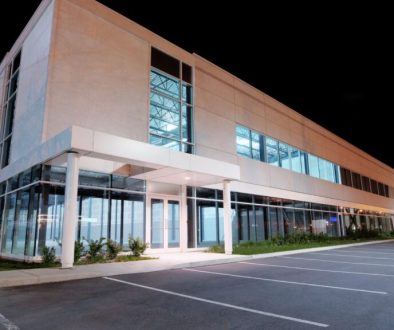Balancing Speed and Due Diligence During the Buying Process
Balancing Speed and Due Diligence During the Buying Process
During the buying process, entrepreneurs face the daunting task of balancing speed with the meticulous nature of due diligence. In the fast-paced world of business acquisitions, rushing can lead to overlooked details that might jeopardize the long-term success of the investment. This post explores the importance of due diligence, the risks of hastiness, and strategies to ensure a thorough yet efficient buying process. We will delve into critical areas such as market education, financial assessment, and negotiation strategies to equip you with the knowledge needed to make informed decisions.
Introduction
Acquiring a business can be a thrilling venture, offering immense potential for growth and profit. However, the path to ownership is fraught with challenges, particularly when it comes to balancing the urgency of closing a deal with the necessity of thorough due diligence. In today’s competitive environment, buyers often feel pressured to act quickly to secure a desirable business opportunity, fearing that hesitation may lead to losing out to more decisive competitors. This rush, while understandable, can result in significant oversights and costly mistakes.
In this article, we will discuss the essential elements of the buying process, emphasizing the critical nature of due diligence and the strategies available to maintain a balance between speed and careful assessment. From understanding market valuation to executing effective negotiation tactics, we will provide insights that can help ensure a successful acquisition.
Understanding the Importance of Due Diligence
- Due diligence is a comprehensive appraisal of a business that a prospective buyer must conduct before finalizing a purchase. This process includes reviewing financial statements, operational procedures, and legal compliance, among other factors. It is crucial for identifying potential risks and validating the seller’s claims.
- According to a survey conducted by the Association of Business Brokers, nearly 70% of buyers who neglected due diligence faced post-acquisition challenges, including unexpected liabilities and operational inefficiencies. This highlights the critical need for thorough verification of information provided by the seller.
- A notable case study is that of a company that rushed through the due diligence process when acquiring a tech start-up. They failed to uncover significant legal issues that resulted in costly lawsuits after the acquisition. This scenario underscores the essential role of due diligence in safeguarding the buyer’s investment.
The Role of Market Education in Accelerating Due Diligence
- One of the first steps in the buying process is market education. Understanding the market landscape allows buyers to make informed decisions about which businesses to pursue. It provides context that can enhance the efficiency of the due diligence process.
- Buyers should familiarize themselves with valuation methods, such as asset-based, income-based, and market-based evaluations. This knowledge helps in assessing the asking price of a business and identifying whether it aligns with market norms.
- Furthermore, understanding key metrics like Seller’s Discretionary Earnings (SDE) and Earnings Before Interest, Taxes, Depreciation, and Amortization (EBITDA) can expedite the financial review process. For instance, a buyer versed in these metrics can quickly assess whether the financial health of a business aligns with their investment goals, saving valuable time during negotiations.
Navigating Financial Assessments with Efficiency
- Financial assessments are a cornerstone of the due diligence process. Buyers must scrutinize profit and loss statements, balance sheets, and cash flow statements to gauge the business’s viability and profitability.
- To maintain speed in this critical phase, buyers should prepare a standardized checklist of financial documents needed for review. This checklist should include tax returns, accounts receivable and payable aging reports, and inventory lists. Having pre-defined criteria allows for quicker analysis and identification of red flags.
- Additionally, using financial analysis software can streamline the review process. Tools such as QuickBooks and Excel models can assist in automating calculations and generating reports, facilitating quicker insights into the business’s financial health.
Negotiating Offers: The Balance of Speed and Thoroughness
- Once due diligence is underway, buyers must prepare to negotiate offers. This phase can be particularly challenging as buyers feel the pressure to act quickly to secure a deal. However, hasty negotiations can lead to unfavorable terms.
- To strike a balance between speed and thoroughness, buyers should establish a clear negotiation strategy before entering discussions. This includes defining non-negotiable terms, understanding the seller’s motivations, and establishing a range of acceptable offers based on thorough financial analysis.
- Using experienced brokers or advisors during negotiations can also enhance efficiency. Their expertise in negotiations can help buyers navigate complex discussions and avoid pitfalls, allowing for a quicker yet judicious approach to reaching an agreement.
Timing the Transition: Closing the Deal
- The closing phase of a business acquisition is often where speed becomes a critical factor. Delays can lead to lost opportunities or increased costs. However, it is vital to ensure all due diligence findings are adequately addressed before finalizing the deal.
- Buyers should maintain open lines of communication with all stakeholders involved in the transaction. Regular updates can help keep the process moving and ensure any issues are addressed promptly. Utilizing project management tools can also streamline the closing process, keeping track of critical tasks and deadlines.
- In some cases, sellers may be willing to negotiate terms that allow for phased transitions. For example, sellers might remain involved in the business during the initial transition period, providing valuable insights while the buyer takes over. This can ensure a smoother changeover while giving the buyer time to assess operational details without the pressure of rushing through the transition.
Best Practices for Balancing Speed and Diligence
- Prioritize a robust due diligence process: Create a checklist and adhere to it. This will help ensure all vital areas of assessment are covered without skipping important steps.
- Foster relationships with industry experts: Developing connections with financial advisors, legal experts, and business brokers can expedite the due diligence process. Their insights can guide you through complex aspects, ensuring thorough reviews without unnecessary delays.
- Utilize technology: Leverage software solutions for document management and financial analysis. Automation can significantly speed up processes, allowing for quicker turnaround times while maintaining accuracy.
- Set realistic timelines: Understand that while speed is important, thorough due diligence cannot be compromised. Establish a timeline that accounts for all phases of the buying process, including necessary reviews, negotiations, and closing.
- Maintain flexibility: Be open to adjusting your timeline as new information surfaces during due diligence. While it’s essential to remain focused on your goals, adaptability can often lead to better outcomes.
The Impact of Rushing on Long-Term Success
- Rushing through the buying process can have long-lasting implications. Many buyers experience post-acquisition regret due to undiscovered liabilities or operational inefficiencies that were not addressed during due diligence. These issues can hinder growth and profitability, ultimately affecting return on investment.
- According to a study by Harvard Business Review, nearly 70% of acquisitions fail to achieve their intended objectives, with rushed due diligence being a significant contributing factor. This statistic emphasizes the necessity of taking the time needed to ensure a thorough examination of all business aspects.
- A successful acquisition should not only be about closing deals quickly but also about aligning acquisitions with broader strategic goals. Ensuring each acquisition complements the buyer’s overall vision and operational capacity can lead to sustained success.
Conclusion
Balancing speed and due diligence during the buying process is critical for ensuring that investments yield positive outcomes. While the urgency of closing a deal is understandable, neglecting thorough due diligence can lead to adverse consequences that may hinder future success. By prioritizing market education, adhering to structured financial assessments, and fostering effective negotiation practices, buyers can navigate the complexities of business acquisitions more efficiently.
Ultimately, the goal should be to approach acquisitions with both speed and careful consideration, ensuring that each element of the buying process is adequately addressed. By doing so, buyers can safeguard their investments and position themselves for long-term success in their new business endeavors.
Whether you are considering buying a business or looking to expand your current portfolio, the key to success lies in your ability to balance urgency with thoroughness. Start your journey today by exploring our listings and discovering the opportunities available to you.



